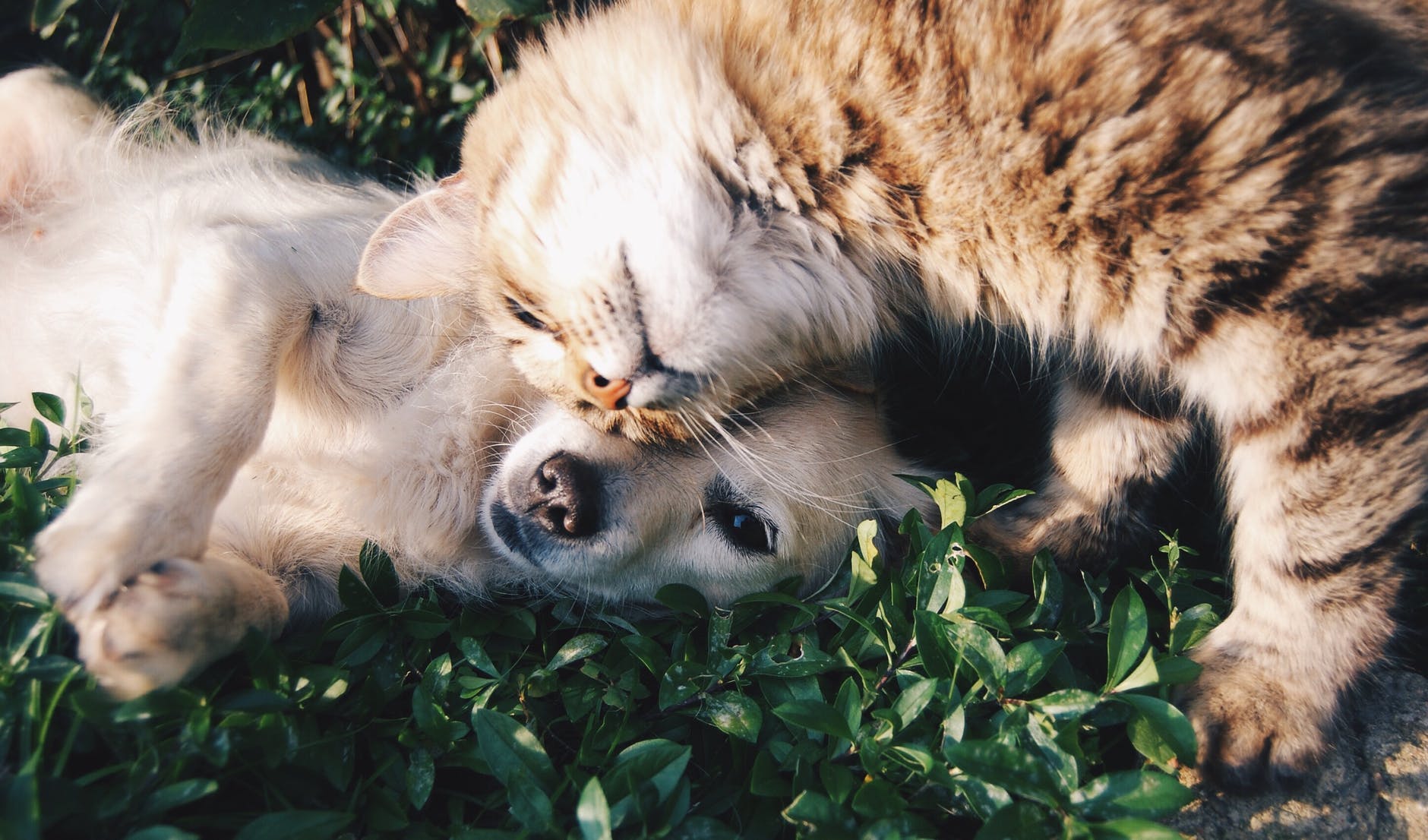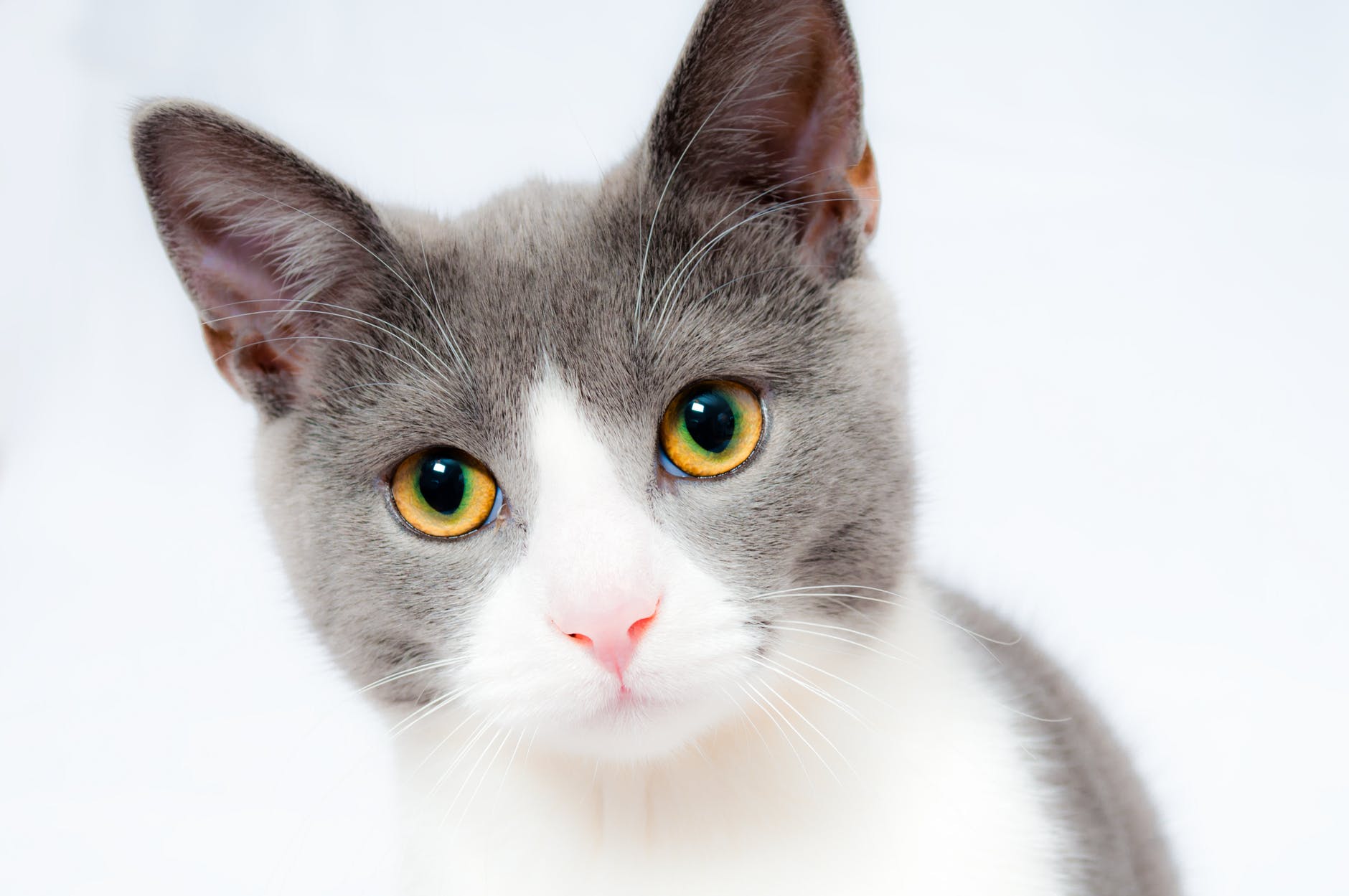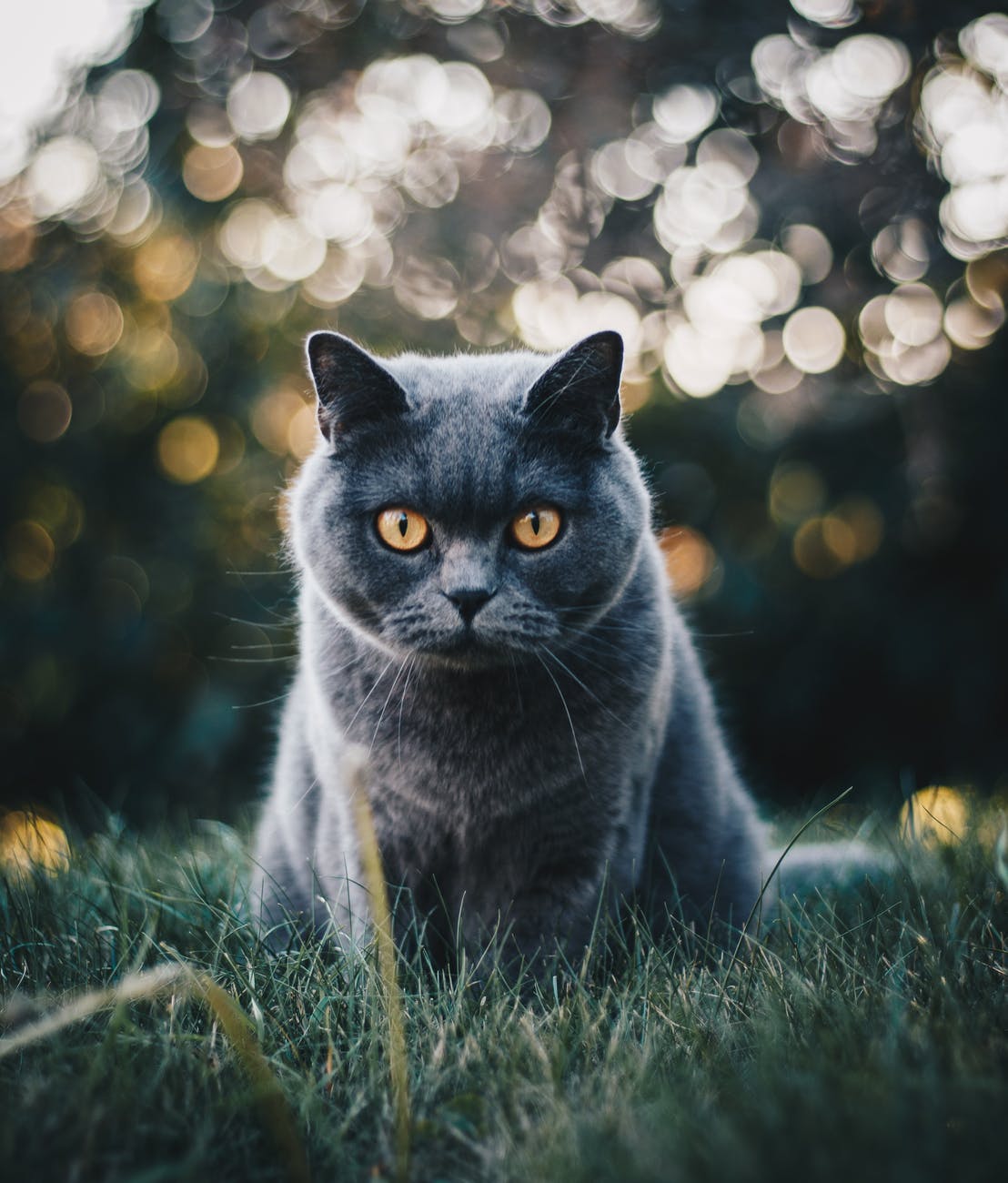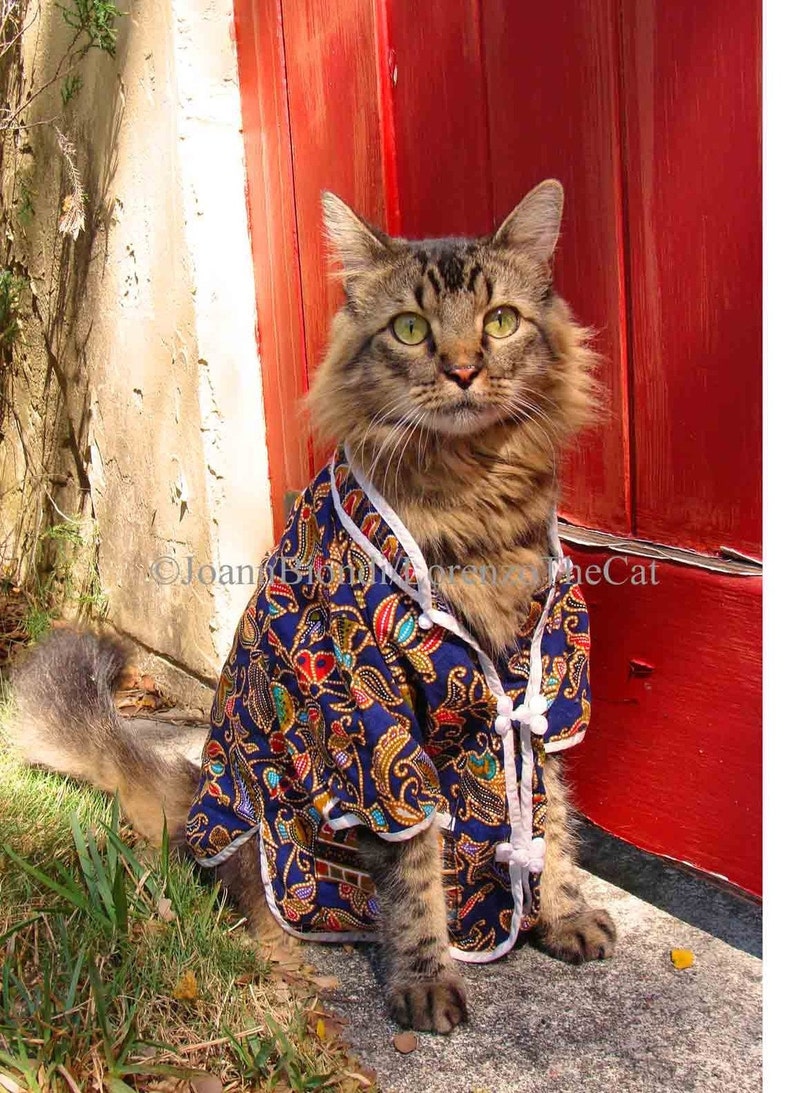
Our furry friends
Cats and dogs are our treasured companions, generally regarded as family members not only in England, but in many countries across the world. They have been of service and company to humans since the world began. Hardly surprising then, that cats and dogs appear so many times in idioms in the English language.

Cats
Let’s start with furry felines and how their behaviour is reflected in English expressions.
” Like the cat who ate the cream” ( or the canary, in another version).
Anyone who knows cats has seen that satisfied expression after they have enjoyed a good meal, especially when it consisted of something they weren’t supposed to eat……humans have been known to wear rhis expression too.
“Look what the cat dragged in”
And to the chagrin of their owners, cats are wont to bring them little “gifts” that they have hunted – generally small creatures in a not very salubrious condition. And the expression is used to denote someone who is not welcome, and/or in a pitiful state.

“Like a cat on hot bricks” (or a hot tin roof)
A cat on walking on bricks or a hot tin roof would be agitated and jumpy. This expression is said to date back to the 14th century, when the expression had the cat walking on a bakestone, a large stone which was heated to cook bread. And some of you will immediately think of the Tennessee Williams play pictured above, which was made into a film in 1958 starring Elizabeth Taylor and Paul Newman who played. yes you guessed it, agitated and jumpy characters.

More Catty expressions
According to the Merriam -Webster dictionary, the word catty was first used in 1598 and has come to mean spiteful or malicious. But I can understand why a cat might be upset if it found itself in the followng situation
“Not enough room to swing a cat “
This is used to talk about a small confined space, so why would anyone in their right mind swing a cat in it?? One theory is that it actually refers to a cat o’nine tails whip, which was used to punish sailors in the Royal Navy in the 1600’s. There was no room to swing the nine-tailed whip in the tiny cabins so the flogging would take place on deck.
“Cat got your tongue?”
This is a popular expression from the 1960’s and 70’s, usually addressed to someone who is inexplicably silent. But why are cats blamed for someone’s loss of speech? The first theory goes back to the cat o’ nine tails in the 17th century, on the premise that someone who had been whipped with this nasty instrument would not be much inclined to speak. Hmmm. Or you could choose to believe that witches’ cats had the power of removing someone’s powers of speech, so that they could not report the offending witch to the authorities. And yet another theory harks back to the Ancient Egyptians who are said to have fed the tongues of delinquents to cats.
As “cat got your tongue?” was first seen in print around the beginning of the 20th century, all of these theories are pretty unlikely. Don’t believe everything I tell you.
These are just a handful of phrases that involve our feline friends- there are more. But my personal favourite is the the cat’s pyjamas.

This expression dates back to the Roaring Twenties when there was a trend for inventing nonsense expressions using animals and anatomy – the bee’s knees, the fleas’s eyebrows, the pig’s wings, the elephant’s instep……. Only a few of these expressions have survived until today, and all of them are used to mean something outstanding. The “bee’s knees” is used more in the U.K., whereas “the cat’s whiskers,” “the cat’s meow” and the marvellous idea of the cat’s pyjamas became more popular in the States.
I categorically wish you all a good day.
Coming up next ….. dogs !
10 replies on “Catty language”
Thank you very much for writing back to me. I am so sorry that it’s taken me so long to reply! I completely agree that an expression like “It’s raining cats and dogs” must have resonated with a lot of people to have survived for so long, especially as you say given the huge changes that have taken place since medieval times. I love trying to imagine what it would have been like to live in the olden days and find it incredible that people were able to live in houses with leaky roofs where cats and dogs would fall down when it rained! It would be fascinating to know if there are expressions from the olden days that people from modern times originally thought meant one thing but then realised or discovered actually meant something else. I remember one of my teachers saying that in science it is very common for theories to be revised or even completely overturned when people make new discoveries and I wonder if it is the same with the study of language – one person comes up with a theory to try to explain the meaning of an expression and then other people have a look at old books and see if they can find evidence that supports the theory or undermines it. So maybe we could study and learn about language in the same way that we study and learn about nature? I think that historians would love to read your blog because learning about old sayings and expressions could help them to discover what life was like in the past and understand the challenges that people faced when they didn’t have all the luxuries that we are so lucky to have today.
LikeLike
Thanks for your reply Charlotte! I think it’s true that sometimes we have several theories about the origins of expressions and words, and not much back-up evidence for any of them. And this is precisely what makes it fascinating for me! If I find an example of an expression that had its meaning “revised”, it will definitely be included in the blog. Thank you again for your interest!
LikeLiked by 1 person
I’ve really missed your blog posts! May I ask you about a strange idiom that I once heard one of my teachers say? I think it is about cats AND dogs!
LikeLike
Of course Charlotte!! Let’s hope I know the answer 😜
LikeLike
I am extremely sorry it has taken me so long to tell you the idiom I was thinking of. The one I had in mind is “It’s raining cats and dogs”.
LikeLike
Hi Charlotte,
There are a few theories about the origins of “raining cats and dogs”, which are mostly unlikely. One says the expression came from the old French word “catadoup” which means waterfalls in Old French, but sadly there is no evidence to back this up. Another theory links the expression to the Greek word “katadoupoi” meaning waterfalls on the River Nile, but again this is unsubstantiated.
There is an idea around that cats and dogs used to live in the thatched roofs of houses and cottages, so when there were heavy rains, the animals would fall out, I can imagine a cat nestling in thatched roof, but dogs ?? What is more likely is that due to poor or non-existent drainage in towns or cities with little sanitation, dead animals could be flushed out by heavy rainfalls and their bodies could appear in unlikely places. looking like they had been “rained”.
Yet another theory says that Norse mythology associated cats with heavy rain and dogs with storms, so “raining cats and dogs” was used to describe intense rainstorms.
So I guess the answer is that we don’t really know the answer !!
LikeLiked by 1 person
This is a brilliant answer! I actually quite like it when we aren’t quite sure which of a number of proposed explanations is correct as that means there is a chance for people to come up with their own ideas and look for evidence to support what they say.
Do you think it’s possible that in some cases there might be more than one correct explanation? I was thinking that there must have been a first time where someone said or wrote «It’s raining cats and dogs» so maybe we could say that the explanation of the meaning is what this person had in mind when first using the expression. However, it could be that people who heard the expression took it to have been inspired by something else and so when they started using the expression themselves it was based on a different idea, not on the idea that the first speaker had in mind. For example, the original speaker was perhaps inspired by cats and dogs falling out of thatched roofs but people who heard the expression associated it with animals being washed down the street when there was heavy rain. So the idea that the listeners associated the expression with is different from the idea that the speaker had in mind.
I’m really sorry if I haven’t explained this very well!
LikeLike
You have explained yourself very well, Charlotte!
Regarding ” raining cats and dogs”, I would say that this expression needed to be understood and used frequently through most of the country to have survived so long from the Middle Ages into the 21st century. As our lives have changed incredibly since the medieval times, it is fascinating to dig into the stories behind some of the sayings, although we often have no decisive answer about their origins.
However. common expressions like this one generally reflect situations that we often face in life – for example, the heavy rain in England – and I guess they became popular in the first place because generally, most people could relate to the meaning.
I hope this answers your question.
LikeLiked by 1 person
For me as a cat-lover, this was cat-alytic in making me smile 🙂
LikeLiked by 1 person
Thank you for your cat-chy comment, Prathamesh !
LikeLiked by 1 person